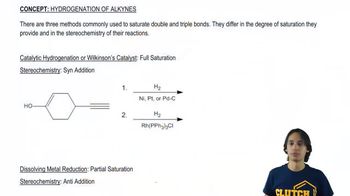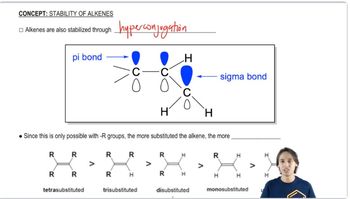Describe the alkyne you should start with and the reagents you should use if you want to synthesize
b. cis-2-butene.
 Verified step by step guidance
Verified step by step guidance Verified video answer for a similar problem:
Verified video answer for a similar problem:



 0:48m
0:48mMaster The definition of hydrogenation. with a bite sized video explanation from Johnny
Start learning